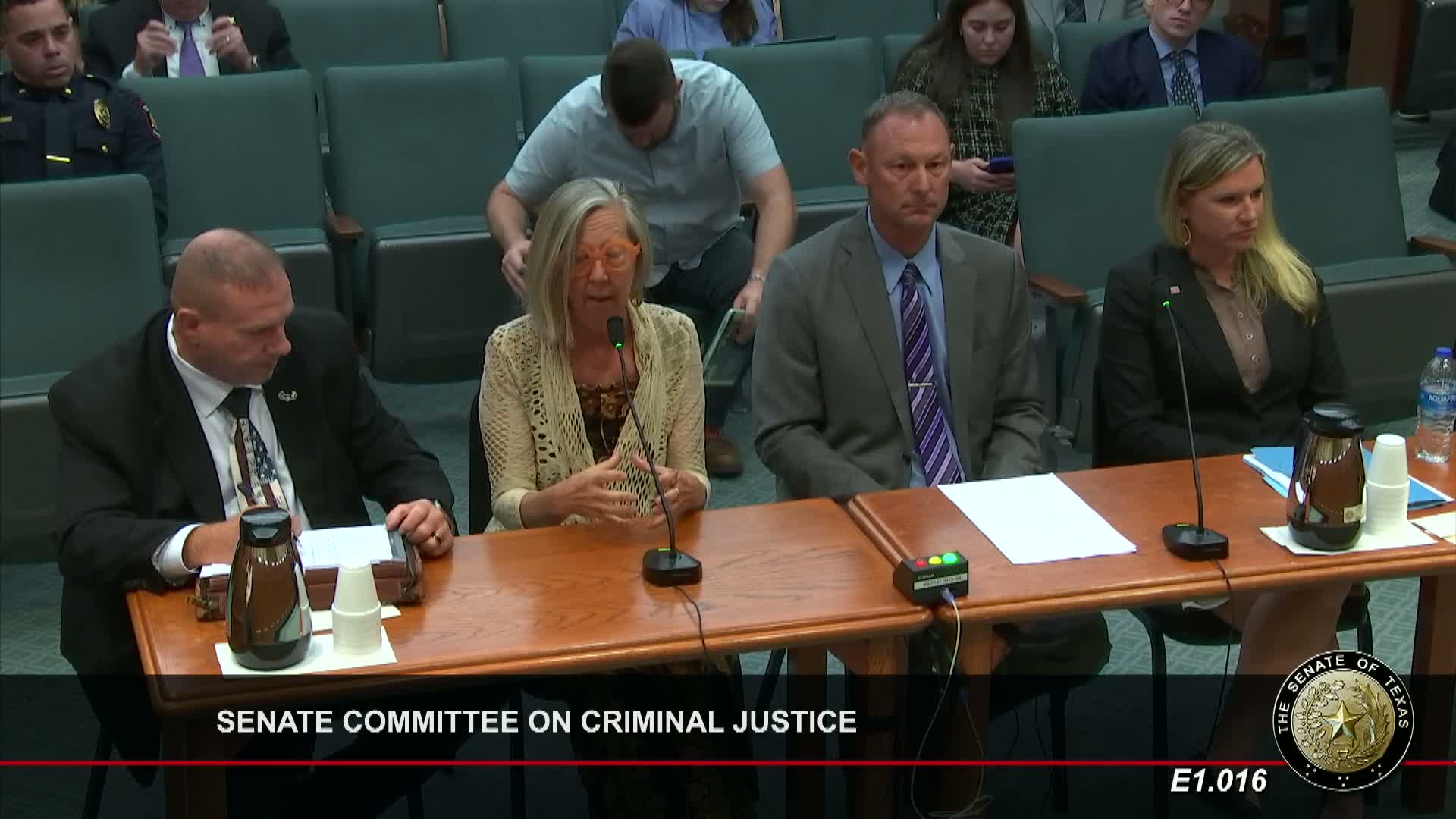Article not found
This article is no longer available. But don't worry—we've gathered other articles that discuss the same topic.
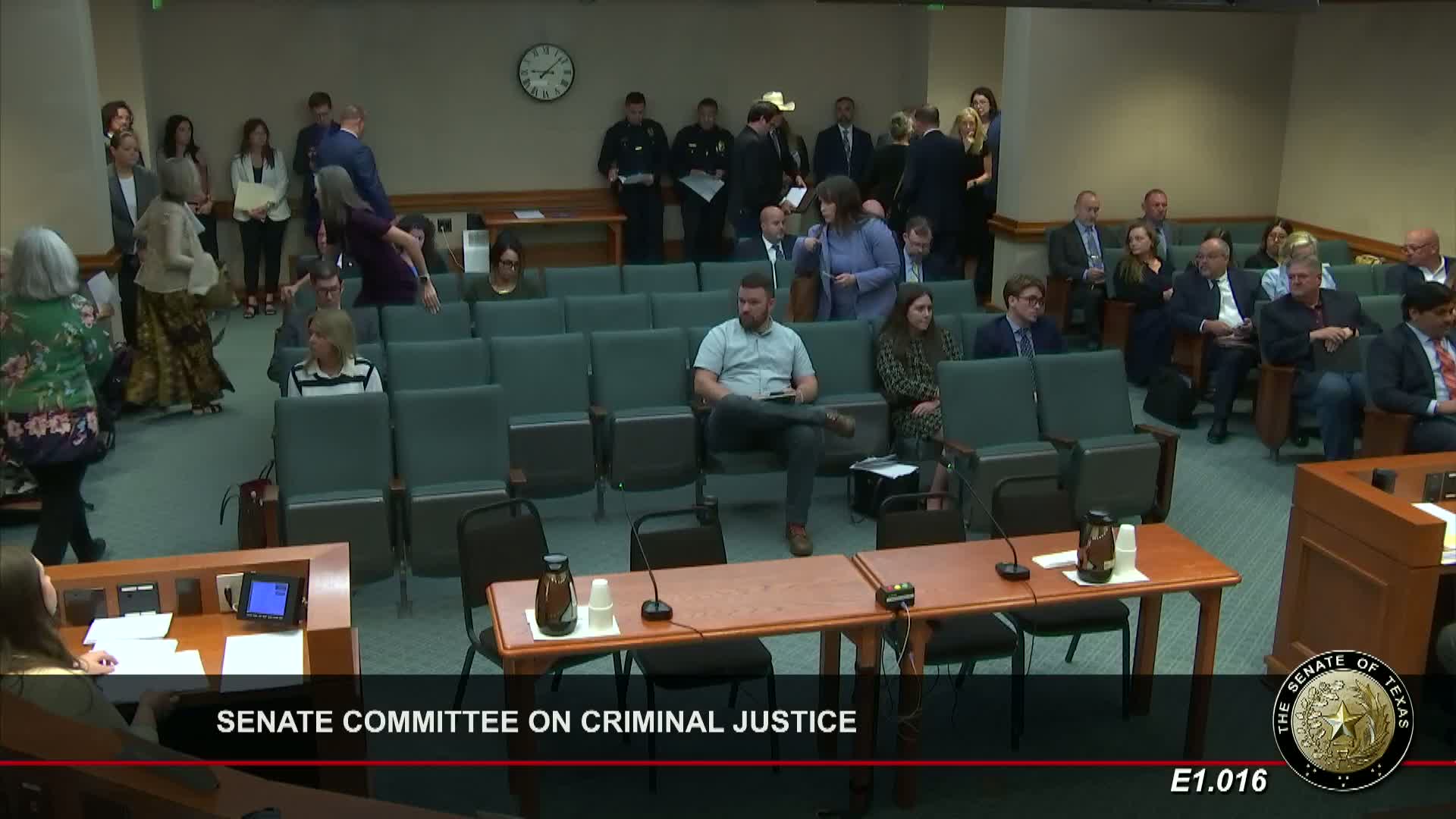
Police groups and prosecutors debate due process for officers on 'Brady' lists in committee hearing
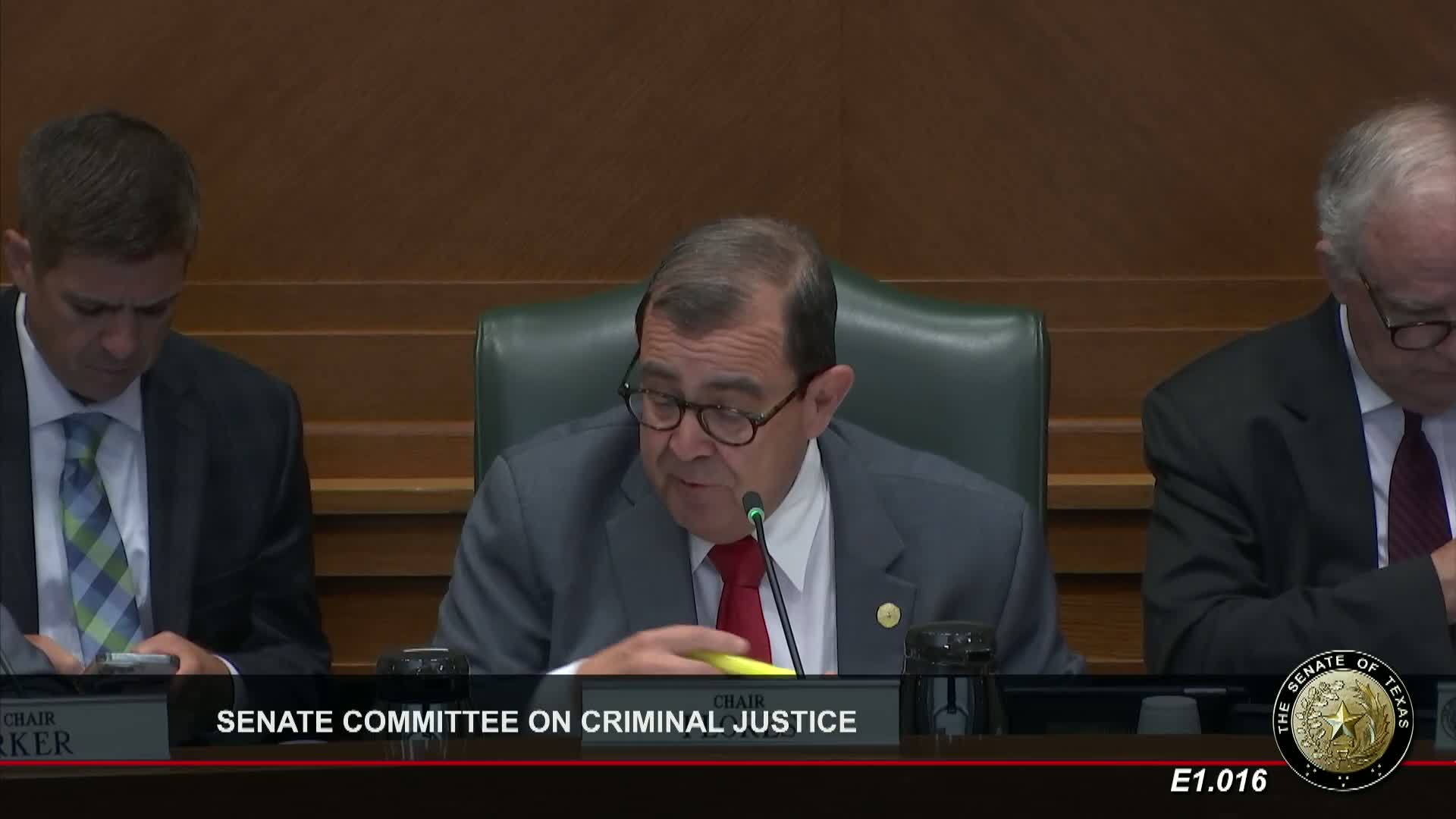
Senate committee hears sharp divide over changing mandatory outside investigations of jail deaths
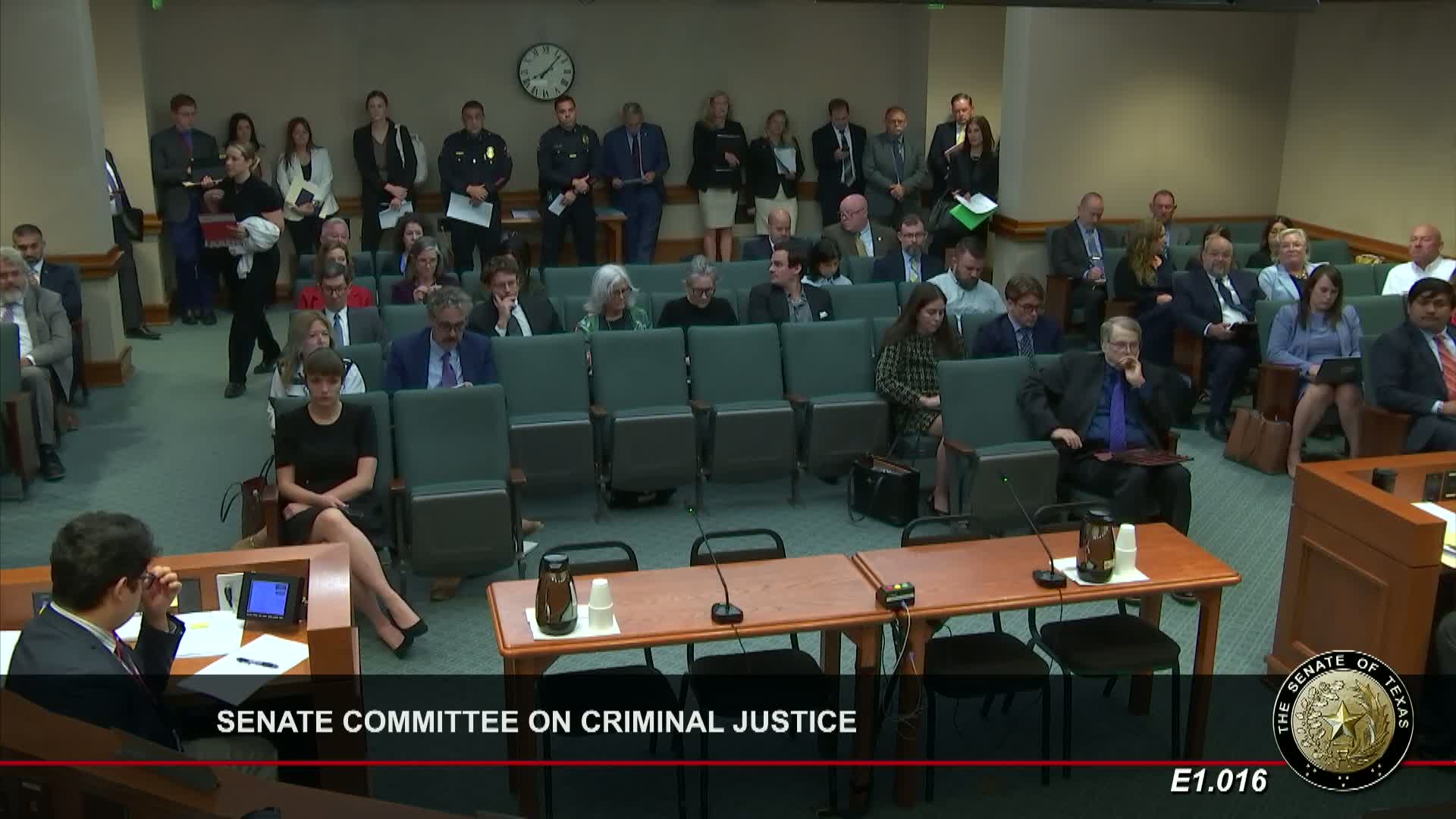
Senate panel hears survivors urge tougher penalties for knowingly concealing child abuse
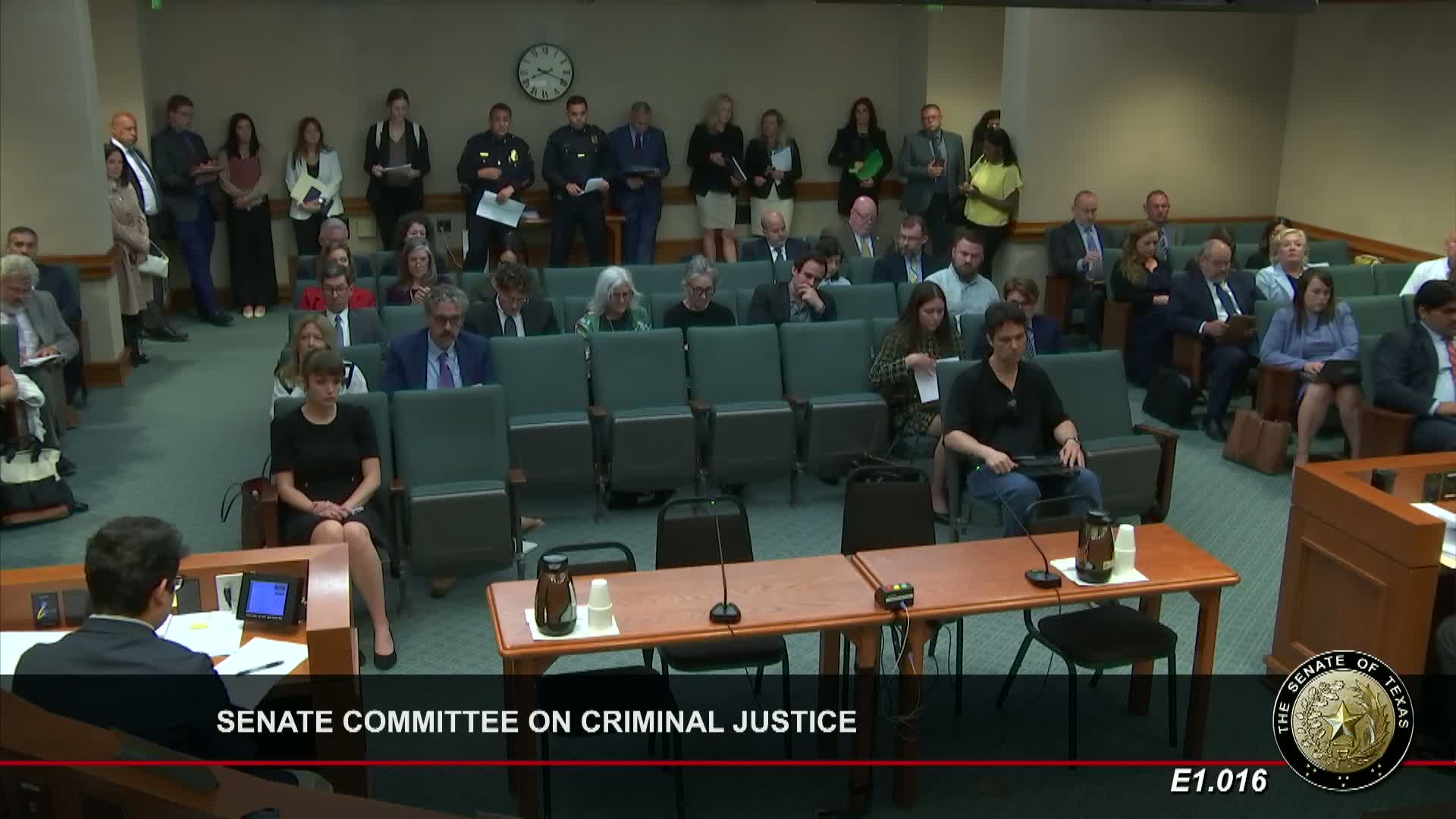
Survivors, prosecutors press Senate committee to elevate human trafficking penalties
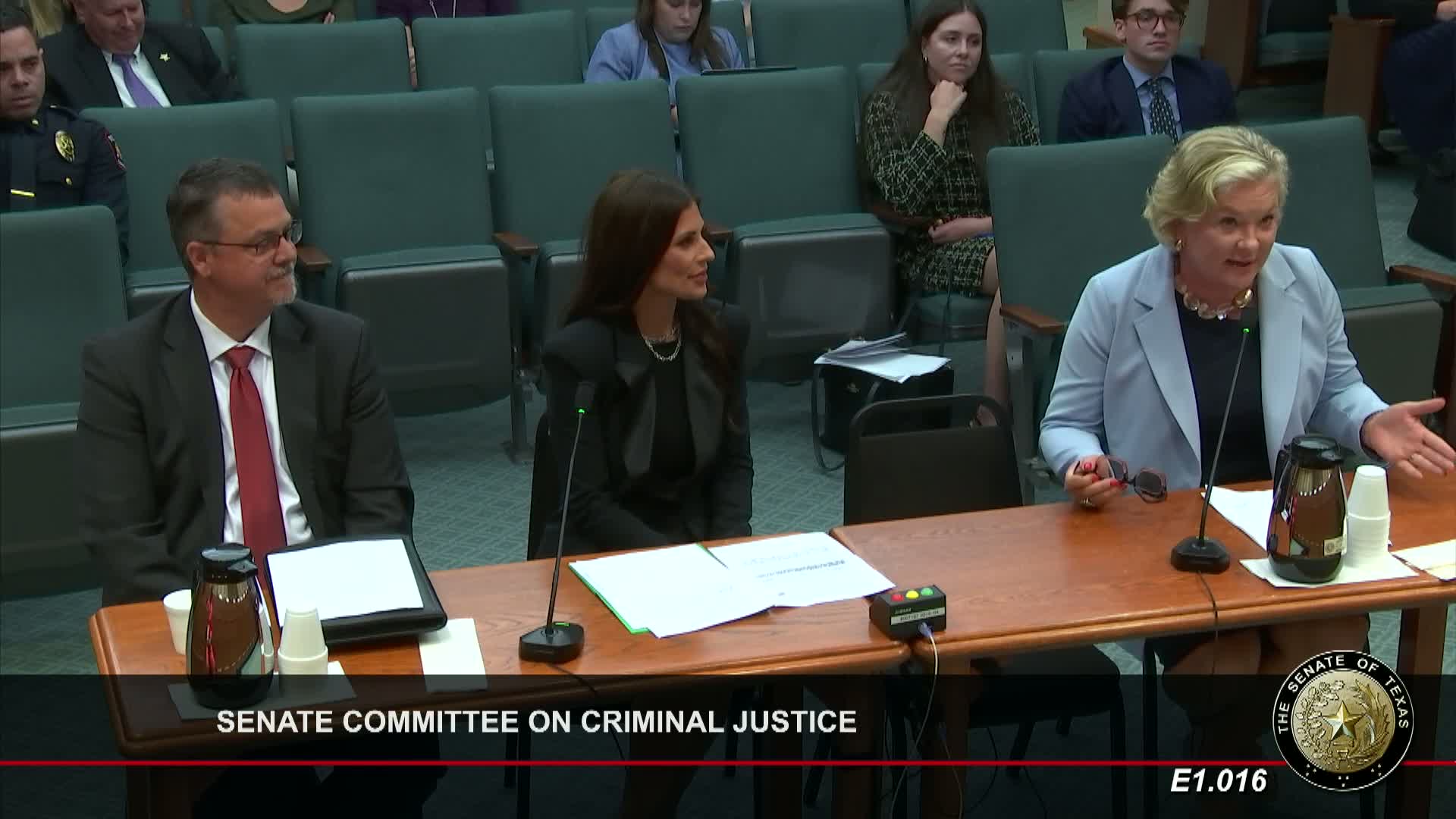
Prosecutors ask committee to speed sharing of DFPS abuse reports for serious criminal cases
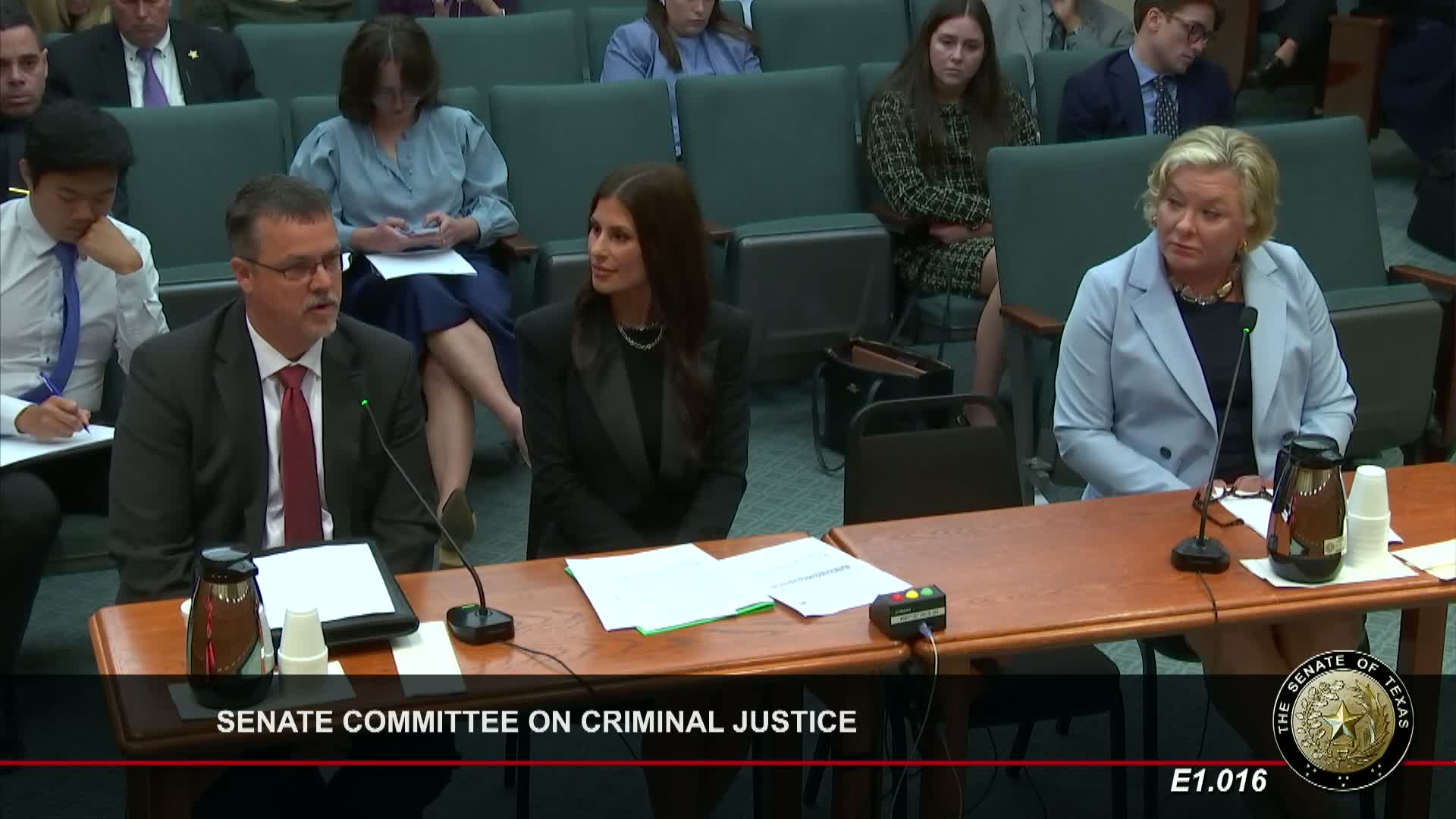
After deadly teen overdoses, senators back tougher penalties for drug trafficking via social media
